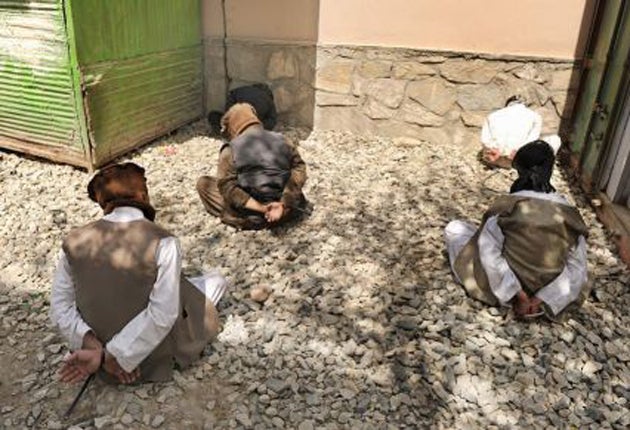Fighters switch back to Taliban after 'broken promises'

Your support helps us to tell the story
From reproductive rights to climate change to Big Tech, The Independent is on the ground when the story is developing. Whether it's investigating the financials of Elon Musk's pro-Trump PAC or producing our latest documentary, 'The A Word', which shines a light on the American women fighting for reproductive rights, we know how important it is to parse out the facts from the messaging.
At such a critical moment in US history, we need reporters on the ground. Your donation allows us to keep sending journalists to speak to both sides of the story.
The Independent is trusted by Americans across the entire political spectrum. And unlike many other quality news outlets, we choose not to lock Americans out of our reporting and analysis with paywalls. We believe quality journalism should be available to everyone, paid for by those who can afford it.
Your support makes all the difference.A quarter of Taliban fighters who laid down their weapons in exchange for amnesty and promises of cash have rejoined the insurgency in a damning prognosis of the problems facing Nato's reintegration strategy, a new report claims.
Eight out of 33 low-level commanders who switched sides are reported to be once again fighting US and UK troops in Helmand, Kandahar and Uruzgan provinces after the Afghan government failed to honour promises.
"If these eight commanders took some of their former foot soldiers with them, they may have rejoined the insurgency with over 100 men," said the report by the respected Kabul-based Afghanistan Analysts Network. It cautioned that the actual figures may be far higher: these are just the commanders that officials know about.
In May, president Hamid Karzai wants to showcase the reintegration and reconciliation policy Nato is pursuing in a peace jirga in Kabul. Although coalition partners have shown varying degrees of enthusiasm for the idea, reintegration is a key pillar of efforts to turn the tide of the war, with Robert Gates, the US Defence Secretary, describing it as "getting the foot soldiers to decide that they don't want to be part of the Taliban".
Aside from mistrust on the part of insurgents, fuelled by past failures to fulfil pledges to fighters coming in from the cold, the threat of violent retribution by the Taliban is another problem.
The report cited the example of one former Taliban commander who switched sides only to see two of his brothers and three of sons executed in revenge killings.
Last year, insurgents executed two civilians every three days who they suspected of aiding the government and international forces.
Join our commenting forum
Join thought-provoking conversations, follow other Independent readers and see their replies
Comments